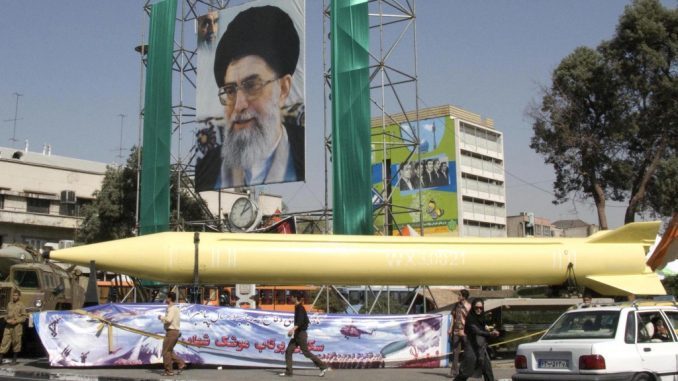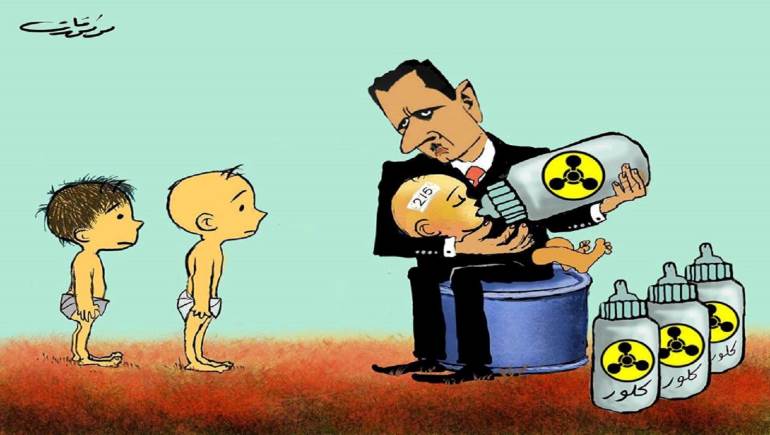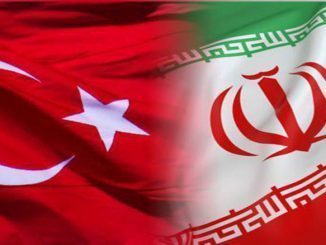
Reports assured that Iran has used missiles capable of carrying nuclear weapons in its latest missile test on Sunday after foreign minister denied the accusation, breaching by this the deal with the UN and opening fire on them in a critical time.
Barack Obama, The former US leader, was behind the historic Iran nuclear deal with P5+1 powers, agreed upon last year, which saw Tehran agree to amend its nuclear output in order to lift all nuclear-related economic sanctions, freeing up tens of billions of dollars in oil revenue and frozen assets.
After lifting the sanctions, Iranian president Hassan Rouhani visited Europe and made deals that worth billions of dollars. European companies started looking for investment opportunities in the growing Iranian market.
However, Trump’s election might change the whole game and threaten the development that was built in the past months.
Trump has said during his election campaign that the deal as “disastrous” and said it would be his “number one priority” to dismantle it.
These threats became clearer after Trump’s inauguration, as he signed an executive order temporarily barring thousands from seven countries in the Middle East and Africa, including Iran, from obtaining visas to travel to the United States.
In a clear challenge, a ballistic missile test was conducted by Iran on Sunday.
A U.S. defense official said that the missile test ended with a “failed” re-entry into the earth’s atmosphere. The official, speaking to The Associated Press, had no other details, including the type of missile. The official was not authorized to discuss the matter and spoke on condition of anonymity.
The last time this type of missile was test launched was in July 2016.
Iran launched nuclear-capable missiles
Iran has tested a cruise missile called “Sumar” that is capable of carrying nuclear weapons in addition to test-firing a medium-range ballistic missile on Sunday, German newspaper Die Welt reported Thursday, citing unspecified intelligence sources.
No comment was immediately available from Germany’s BND foreign intelligence agency or from Iranian authorities.
The newspaper said the Sumar cruise missile was built in Iran and traveled around 600 km in its first known successful test. The missile is believed to be capable of carrying nuclear weapons and may have a range of 2,000 to 3,000 km, the paper said, citing intelligence sources.
Cruise missiles are harder to counter than ballistic missiles since they fly at lower altitudes and can evade enemy radar, confounding missile defense missiles and hitting targets deep inside an opponent’s territory.
But the biggest advantage from Iran’s point of view, a security expert told Die Welt, was that cruise missiles are not mentioned in any United Nations resolutions that ban work on ballistic missiles capable of carrying nuclear weapons.
U.S. Ambassador to the UN said the world should be “alarmed” at the Iranian test and the council should take action.
Haley called the medium-range ballistic missile test “absolutely unacceptable” and said Iran is “being naive” by thinking the U.S. and others accept its contention that it has no intention of attacking any country.
“I will tell the people across the world that is something we should be alarmed about,” she said. “The United States is not naive. We are not going to stand by. You will see us call them out as we said we would, and you’re also gonna see us act accordingly.”
Dilemma in a critical time
However, Iran’s foreign minister has two days ago denied launching this kind of missiles and said it is a game from the US to put Iran under fire.
“The missile issue is not part of the nuclear deal. As all signatories to the nuclear deal have announced, the missile issue is not a part of” the deal, he said.
Iran’s missiles, he added, are “not designed for the capability of carrying a nuclear warhead … Our ballistic missile was designed to carry a normal warhead in the field of legitimate defense.”
Zarif said he hopes the issue is not used as “an excuse for some political games by the new U.S. administration. The Iranian people would never allow their defense to be subject to the permission of others.”
Zarif has said its ballistic missile launches are not banned under U.N. Security Council Resolution 2231 because the prohibition applies only to missiles specifically designed to carry nuclear warheads.
This dilemma came in a critical time for Iran when as it started to get the positive results of the nuclear deal. This week the French foreign minister was in Tehran to attend a joint economic summit. The trade between the two countries had surged by 200 percent since the July 2015 deal.
Major French corporations including planemaker Airbus (AIR.PA), oil major Total (TOTF.PA) and car companies Peugeot (PEUP.PA) and Renault (RENA.PA) have all signed contracts.
Thus, any change in the global policy towards Iran will be disastrous for Iran on both the political and economic sides.



